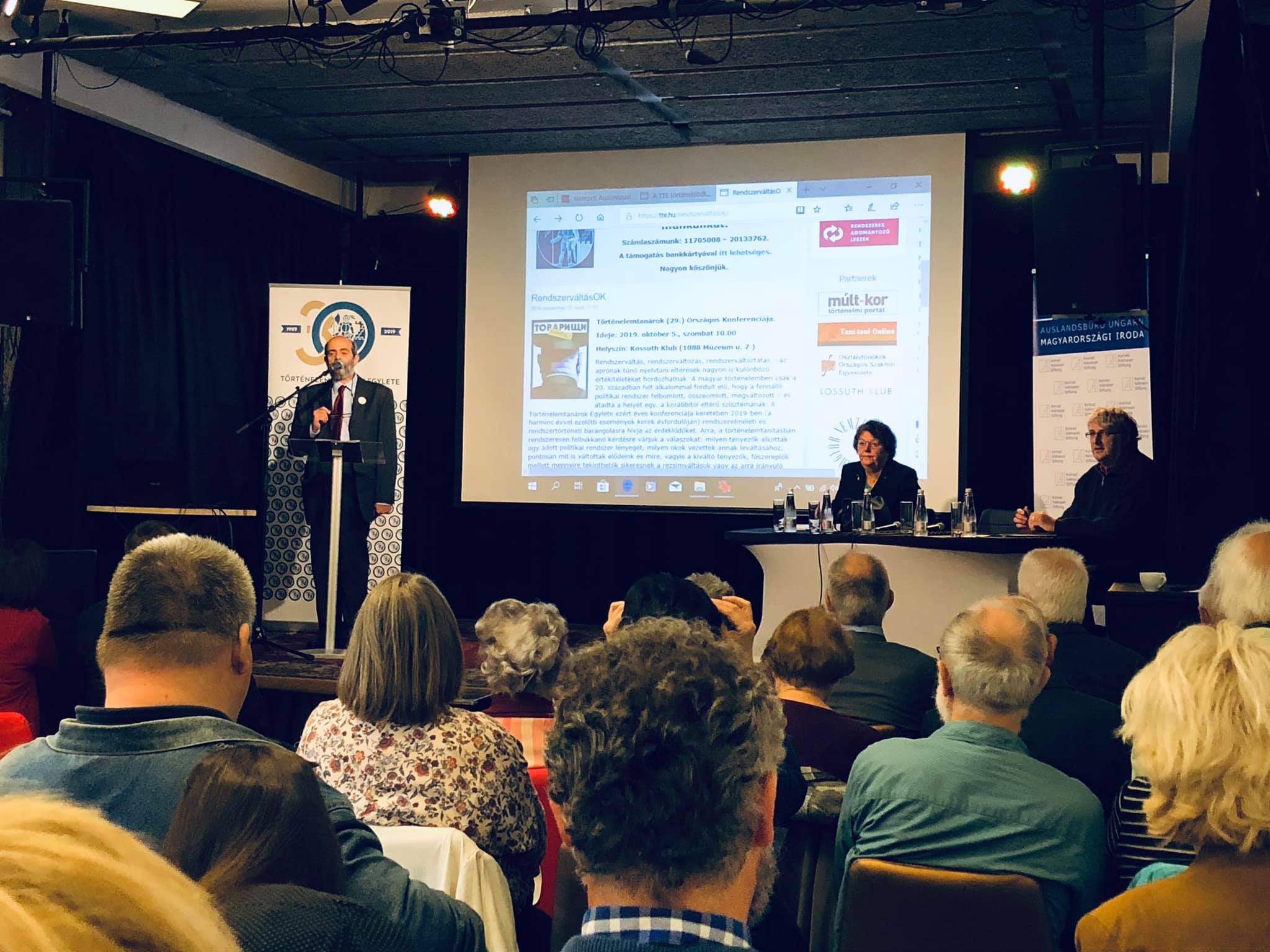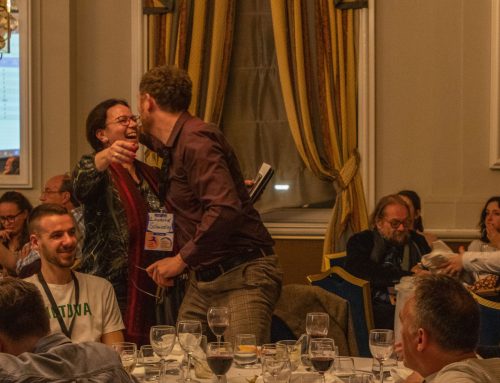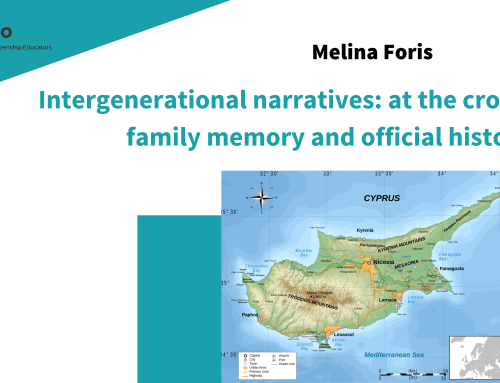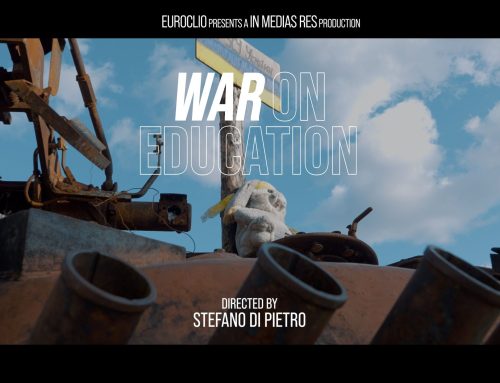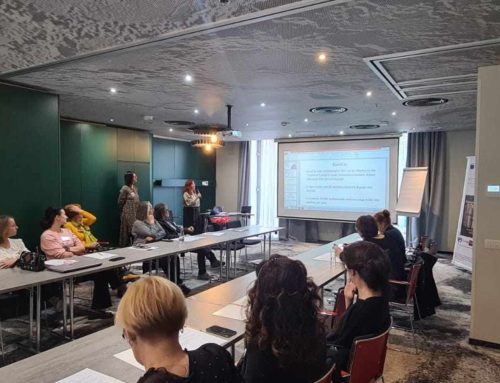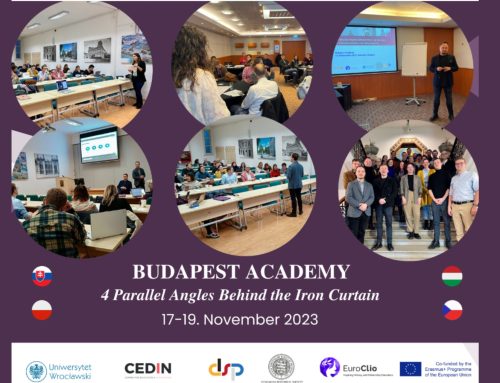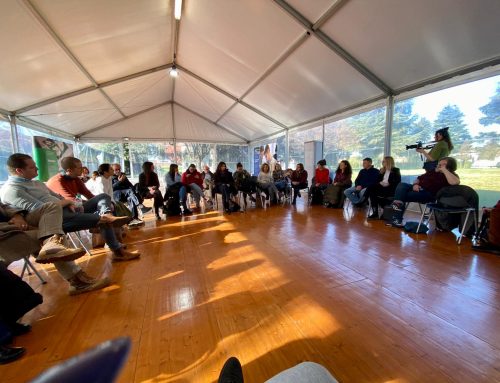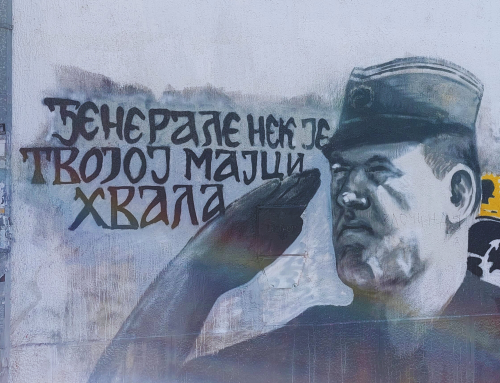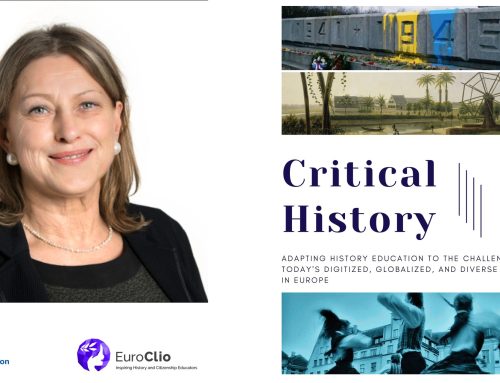To celebrate the 30th anniversary of the TTE (Association of the Hungarian History Teachers), Zsolt István Vódli conducted (and translated) an interview with Mr. László Miklósi, the President of the TTE regarding the growing tensions vis a vis history teaching in Hungary. In a context of growing nationalism and xenophobia, László Miklósi reflects on the policies adopted in Hungary, and the role of the TTE to reverse this development.
What are the main challenges for the teaching of history in Hungary today?
History teachers, on the one hand, must deal with the difficulties that characterize the situation of Hungarian schools, which means that they work in a centralized, top-down, controlled system. On the other hand, due to the specific situation of history, they are also affected by the politics of remembrance and ideological issues.
From the next school year (2019) – with some temporary exceptions – there will be a state controlled textbook monopoly in Hungary. (For the 6th graders of primary schools, a quite usable textbook from a private publisher can still be ordered, but the textbooks for 5th, 7th and 8th grades of the same series are no longer possible to use). Therefore, the students will not be able to learn from a good, usable textbook series. At the same time, the quality of the state-published textbooks is, in many cases, highly controversial. The Association of Hungarian History Teachers (hereinafter as TTE) regularly draws the public and the professionals’ attention to these problems by analysing and making critical statements about these textbooks.
It is questionable whether teachers can teach to the best of their belief and use the most appropriate teaching aids. This may be due to the Ministry, the manager of the local educational authority, directions coming from the principle, or presumed or real pressure. In April 2019, the Ministry of Education drew the teachers’ attention to the fact that only the state-published textbooks could be ordered for the next school year (without parental allowance). And also, that the teacher cannot ask the parents to buy another book. At the same time, the statement failed to mention that parents have the right to buy a different textbook, and if it is accessible for all the students in the class, it can even be used by the teacher during the lessons. Because of the pressure, most teachers (not only history teachers) – while they know that other books would be better professionally – will eventually use the state-published textbook “to be on the safe side”.
In other cases, the teacher may be afraid of the reaction coming from the parents. Parents can bring charges against you or can even have you dismissed if you are not in the queue to join or they don’t not approve your attitude.
Meanwhile, politics of remembrance can also affect school work. (Typical examples, connected to statues in Budapest are: the erection of the monument for the German occupation on Szabadság Square; the restoration of the Kossuth Square to the state of 1944; the removal of the statue of Imre Nagy from the Parliament, etc.).
Since the democratic changes, there has been no ideological expectation for history and history teaching for two decades. At present, historical institutes created and supervised by the government after 2010 may serve to reinterpret history. At the same time, the independence of the scientific institutes of the previously autonomous Hungarian Academy of Sciences is expected to change. Altogether, the mandatory value system has also appeared in the curriculum regulating history teaching.
Of course, the content of history teaching, the nature and quantity of the material to be taught, the modernity of the material and its usability for students are all very important. According to TTE, the compulsory knowledge should be reduced radically (by at least one third, but preferably by half): less content but deeper knowledge, in a more versatile way. This requires curriculum regulation. It is important that this is not regarded as a matter of principle but rather of a political nature.
Could you describe, in particular, the mechanism through which the government is intervening history teaching? Is there something more beyond state sanctioned textbooks?
The teaching (of history) is basically regulated by curricula and the rules for the graduation examination. In the curricula currently in force – two decades after the democratic changes- the mandatory value system has appeared. Thus, the traditional concept of peace-making with Hungary closing World War I was the Trianon Treaty. Based on a previous change, today it is the Trianon Peace Agreement. The rating is therefore specific and mandatory. There is no need for the student to conclude and qualify based on his / her assessment.
At the request of the Ministry, a professional team prepared a draft for the future of national core curriculum. (The experts working on the material repeatedly requested advice from civil organisations, which has been unique since 2010.) When the draft was made public and was open for discussion, the Ministry notified that the group of experts who were requested by the government to overview the material had stated that they could not accept the proposed material as the National Core Curriculum in History and Hungarian Language and Literature in the present form. At the moment it is not yet clear what the material approved by the Ministry will contain.
Earlier, textbooks were recommended for approval by a group of experts appointed by the government, based on a very specific list of aspects. As an important element of the new system -with the support of the European Union- so-called experimental (now called New Generation) textbooks have been developed. Students started to use these books before they had even gone through the necessary textbook accreditation process. TTE’s analysis drew the attention of the professionals and the general public to the fact that these new textbooks were overwhelmed by errors. A special working method was applied: the textbooks were not written by authors but by so-called curriculum developers. There were significant changes during the production process, and it could happen that a well-known expert didn’t even recognise his own material in the finalised textbook.
The analysis of TTE is available: https://tte.hu/tankoenyvbiralat
According to the current regulations, only two textbooks can be used in one grade per subject. Private publishers have not been allowed to have their textbooks approved or have their license extended. The Ministry claimed that if the same textbook is used in all schools it helps to provide equal opportunity and is available free of charge. In fact, however, the state, as a publisher, can have a direct impact on the content, too, while this way they can cut out the private publishers from the market.
How does the state-run Education Research and Development Centre (OFI) work? Do you, as the Hungary’s Association of History Teachers, have any kind of influence in this governmental body?
The Education Research and Development Centre (hereinafter as OFI) used to be a back office of the Ministry. At present organizationally, formally it operates within the framework of the Esterházy Károly University.
Nowadays, independent civil organisations have very little influence on state organizations in Hungary. TTE is one of the most well-known teacher’s organizations in Hungary. Apart from the professionals and governmental control, thanks to the media the general public can also monitor our work.
A typical example, the experts of the OFI was very much looking forward to the one- hundred-page analysis of TTE about the Experimental History Textbook for 9th grade, which is full of errors, as they wanted to take it into account in order to improve the textbook. However, the Head Director of OFI was not able to reveal the truth, and claimed in a prime-time news program that there was no professional error in the textbooks.
Viktor Orbán (and the Fidesz Party with him) has been the Prime Minister since 2010. Did the changes to history teaching started back then or only now and why?
The changes are gradual. The Constitution and the National Public Education Act were passed in 2011. This was followed by the centralization of schools, the restriction of the rights of teachers, students, parents; the suspension and reform of professional reconciliation bodies. The delusion of the textbook market has not just begun either. Over the years, textbook publishers have been made ‘starving’, and this year came the final crush. Changes are ongoing.
In your view, what will be the future outcome of this process of changing history education in Hungary? How does the future generations will think about issues such as migration or nationalism under this new setup?
The topic of the TTE annual conference is usually a current, important issue. Naturally, in 2015, when there were thousands of refugees around the Budapest railway stations, the topic of our historical discussion was the refugee issue. I was surprised to find out that the Hungarian Times (Magyar Idők in original translation) government newspaper attacked the TTE due to the choice of the topic for the professional conference. Many people are open to nationalism and are anti-refugees. If the current trend continues, intolerance and exclusion can be intensified. This can have very serious consequences and not just in Hungary.
If the state dictated current system of values and direction remain persists, moving away from the values of the past two decades after the democratic changes, the history teachers will be in a more difficult position. One of the merits of the democratic changes was the elimination of the mandatory value system required by the state and the dominance of state textbooks. Thirty years ago, in 1989, we could not even imagine that these could become part of our everyday lives again. I do hope that we will not get back to the situation when a history teacher needs personal courage to teach history according to his or her best professional beliefs.
Is the Hungary’s Association of History Teachers involved in measures taken by civil society to reverse this development? So far, what have you done to tackle this issue?
1) Civil cooperation
The Association of Hungarian History Teachers initiates, encourages and sometimes co-ordinates the cooperation of civil organizations from the very beginning of its foundation. It is the founder, active member, and a driver of many civil cooperation. The aim of the Civil Education Platform (the collaboration of fifty educational professional organizations, trade unions and protest movements) is to work together on these changes. In its most active period, in 2016, László Miklósi, president of TTE, was one of the spokespersons of the Civil Education Platform during the national protest movement of teachers.
Recent Cooperation: in December 2018, the TTE launched a movement on the 70th anniversary of the UN Declaration on Human Rights to address human rights in school according to its importance. This initiative was signed by 22 civil organisations.
2) Analysis of textbooks
TTE’s textbook and map analyses have highlighted the fact that there are countless errors in the experimental textbooks. Our analyses were followed by others (eg. highlighting errors in the Hungarian-, ethics-, geography etc. textbooks), thanks to the media coverage we have made the textbook question into a public matter.
3) Free choice of history atlas at the graduation examination!
With the help of a wide range of civilian co-operation – against the intention of the government – we achieved that it was possible to use not only the government supported OFI atlas but also other history atlases, at the graduation examination in the school years of 2016/17 and 2017/18. It helped the graduation examination of about 150,000 students in history.
4) Civil Prize Award
For the above-mentioned achievements, in 2018, in the category of the Most Successful Advocacy Project, TTE was voted into the final round of the Civil Prize Award making it into one of the most successful civil organisations in Hungary.
5) National Core Curriculum analysis
TTE regularly takes a position on current educational policy issues. Of course, we published our detailed professional opinion on the National Core Curriculum. At the Annual Conference of TTE, in 2018, we organised a discussion about the National Core Curriculum, which was also attended by one of the authors of the History section. (TTE analysis and discussion is also available on TTE’s website.)
6) Conciliation
The TTE was always ready to negotiate with the Ministry. Since 2010, there has been hardly any possibility for that. As a rare exception, in April 2018, the Association of Hungarian History Teachers was invited to a meeting into the Ministry for a discussion about the History Atlas by the OFI. They tried to exert pressure on our organization to adopt the professionally debatable atlas.
7) Publicity
The media presence of TTE is very significant: in 2018, we had 115 first releases in 48 Hungarian and foreign media. See: http://tte.hu/tte-a-mediaban

